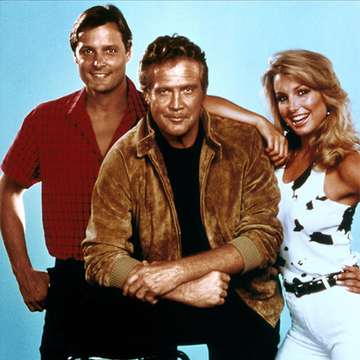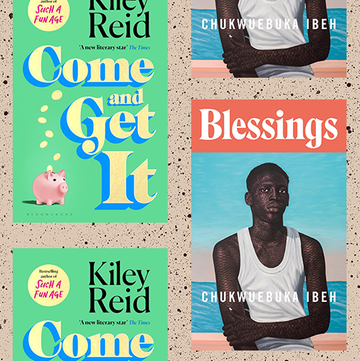In 2016, Beyoncé released Lemonade—one of the greatest albums of the decade, a work of art that shook the foundations of popular culture. A collection of spoken-word poetry, stunning imagery, and deeply confessional music, Lemonade outlined her husband’s alleged infidelity alongside the greater challenges of African-American women. A year later, Jay-Z released his own response, 4:44, a humbled, apologetic, and pensive album that stripped down both his sound and persona.
The struggles and drama of the most famous couple in the world played out right there in music, a direct-from-the-source analysis of betrayal, love, struggle, and the challenges of being black superstars and business moguls in America. For a couple in the stratosphere, their lives and problems were deeply human and shockingly universal.
On Saturday, Jay-Z and Beyoncé released the surprise conclusion to this narrative arc. Everything Is Love, their first full joint album as a couple, is a joyous and enlightened closing statement that acts as a finale to the greatest trilogy in modern music.
It can best be illustrated with their playful reflection on their marriage in the closing track, “Lovehappy”:
You did some things to me / Boy, you do some things to me / But love is deeper than your pain and I believe you can change / Baby, the ups and downs are worth it / Long way to go, but we'll work it / We're flawed but we're still perfect for each other / Sometimes I thought we'd never see the light / Went through hell with heaven on our side / This beach ain't always been no paradise / But nightmares only last one night
It’s a happy ending in a time when it feels like there are none. And they address it with some levity on the track, with Jay and Bey trading bars:
Beyoncé: “Yeah, you fucked up the first stone, we had to get remarried.”
Jay: “Yo, chill man.”
Beyoncé: “We keepin' it real with these people, right? / Lucky I ain't kill you when I met that b-.”
Jay: “Nah, aight, aight / Y'all know how I met her, we broke up and got back together / To get her back, I had to sweat her.”
And while their marriage has been at the forefront of their personal narrative and the tabloids, Jay-Z and Beyoncé manage to elevate that conversation on Everything Is Love.
On “Apeshit,” Beyoncé and Jay-Z analyze cultural institutions that fail to include black artists. The video places black dancers and the Carters in front of white artwork in the Louvre in Paris. They call out the Grammys, which invite black artists for ratings at the ceremony but don’t reward these musicians with actual trophies. (“Tell the Grammys fuck that 0 for 8 shit / Have you ever seen the crowd goin' apeshit?” Jay raps.) Later, he confirms rumours that he turned down the NFL’s offer to play the Super Bowl halftime show after its National Anthem controversy, rapping, “I said no to the Super Bowl / You need me, I don't need you / Every night we in the end zone / Tell the NFL we in stadiums, too.”
As a combined force, the Carters are an institution of their own, one that’s capable of challenging the likes of the NFL and the Recording Academy. Everything Is Love is an album that supplants their success, as both a couple and individuals, as a triumph over systemic racism. “My great-great-grandchildren already rich / That’s a lot of brown children on your Forbes list,” Beyoncé raps on “Boss.” Later in the song, Jay raps, “Niggas rather work for the man than to work with me / Just so they can pretend they on my level, that shit is irkin' to me.”
It appears to be a nod to the artists who are choosing to negotiate exclusive releases with streaming services like Apple rather than Tidal, which the Carters partially own. (Note: Everything Is Love was released on Tidal, so thank you to my girlfriend for signing up for a free trial membership so I could hear this album after I’ve exhausted all my email addresses.)
That confidence extends to the next song “Nice,” in which Beyoncé admits that even the struggling Tidal can’t bring the Carters down. “'Cause my success can’t be quantified / If I gave two fucks, two fucks about streaming numbers / Would’ve put Lemonade up on Spotify / Fuck you, fuck you.” Meanwhile, Jay-Z looks at his own legal struggles within the context of being black in America. “Yeah, fuck your subpoenas and your misdemeanors / Was too busy touring out all your arenas / My passport is tatted, it look like it's active / I play on these planes, y'all catch me in traffic / Y'all drag me in court for that shit, y'all backwards / After all these years of drug trafficking, huh / Time to remind me I'm Black again, huh?” Then, on “Black Effect,” Jay declares that “I'm good on any MLK Boulevard.”
The unity of the Carters is clear musically, too. This isn't an album of two competing egos and superstar artists. Rather, Everything Is Love is a union of both Jay-Z and Beyoncé's greatness. Here, Bey shoulders the bulk of the work, providing powerhouse choruses and hooks, while also demonstrating her own fantastic rapped verses. Jay graciously allows her space in his own verses with the two fluidly trading bars. While it doesn't have the sonic experimentation of Lemonade or the quieter and subtler patchwork of chopped samples of the No I.D.-produced 4:44, Everything Is Love is a staggering statement of expensive production.
What it lacks in revelatory production, Everything Is Love makes up in terms of both Jay-Z and Beyoncé's performances. It's important to note the scope their artistic output over the bulk of this decade: an entire love affair played out almost exclusively through music, and a notoriously private couple addressed their internal and external problems in the medium through which their entire lives have been judged. It's only fitting that this process concludes with Jay-Z and Beyoncé reflecting together on this, in real time through music. Everything Is Love is not Lemonade or 4:44—not even close. But it is the ending that each album deserved.
For the past three years, the Carter family's pain has produced some of the greatest art in Jay-Z and Beyoncé's individual catalogs. They've used music to evaluate and elevate their own struggles. In November, Jay-Z told the New York Times, “We were using our art almost like a therapy session. And we started making music together.” That treatment has clearly worked on Everything Is Love, an album that provides hope in a hopeless time, but it also opens a new chapter—one in which Jay-Z and Beyoncé could accomplish anything as a family.
Matt Miller is a Brooklyn-based culture/lifestyle writer and music critic whose work has appeared in Esquire, Forbes, The Denver Post, and documentaries.














